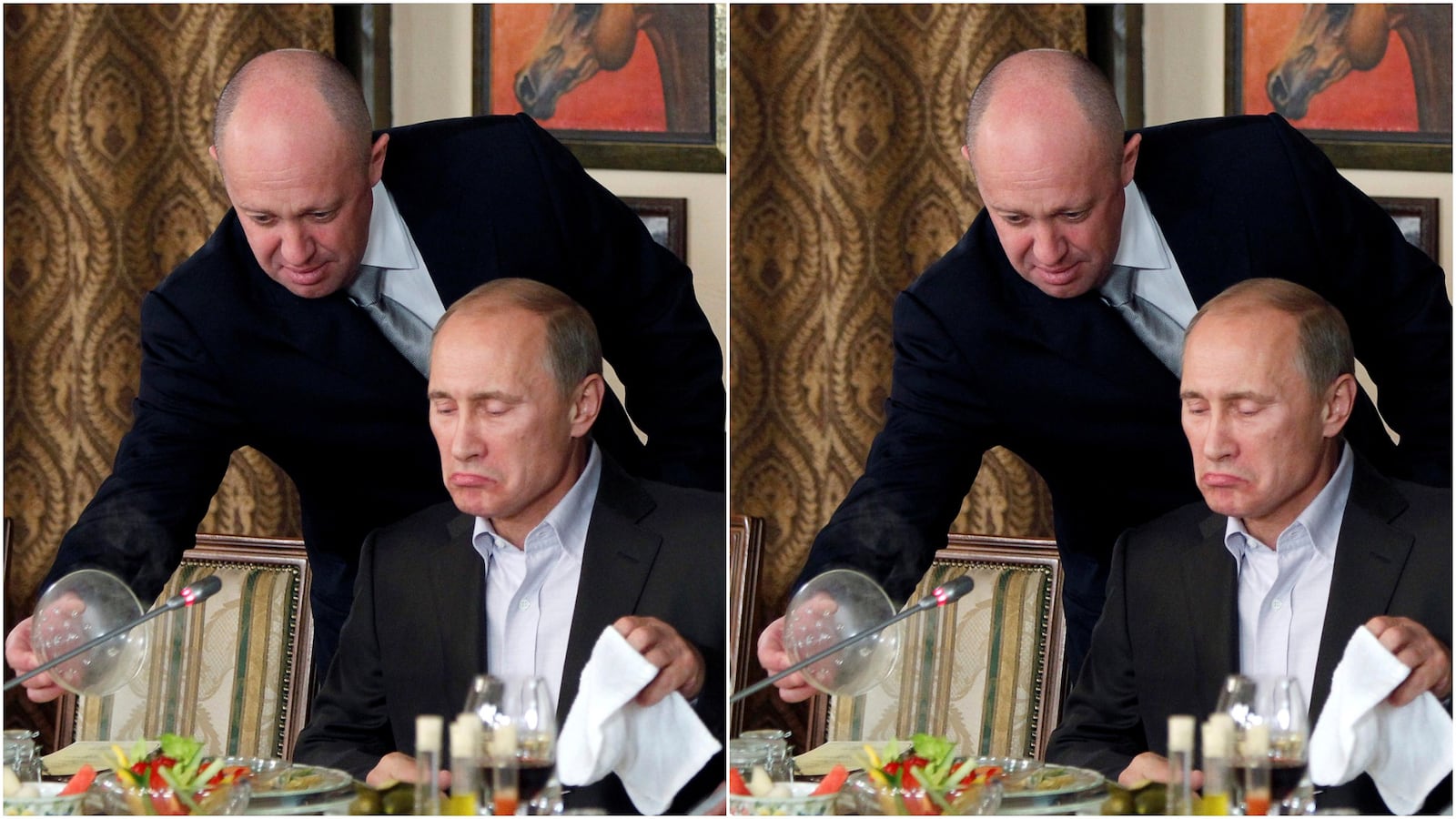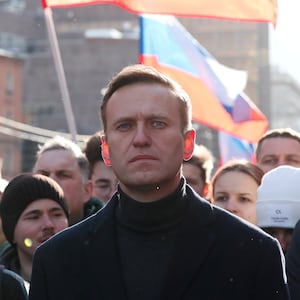When he was released from a Soviet prison in 1990, Yevgeny Prigozhin went to work as a hot dog salesman. Soon, the budding entrepreneur—who had just served nine years for robbery and fraud—began moving up in the world of gastronomy. He became the manager of a chain of grocery stores in St. Petersburg, Russian President Vladimir Putin’s hometown, and eventually expanded into the restaurant business.
In the late 1990s, Prigozhin opened New Island, a floating restaurant on St. Petersburg’s Vyatka river. It became popular with the local elite, and a few years after its launch, Putin showed up for dinner at New Island with French President Jacques Chirac. As has now become lore in certain circles, Prigozhin himself waited on them.
Prigozhin, who would come to be known as “Putin’s chef,” has said that New Island was inspired by the waterfront restaurants he saw along the Seine in Paris. But as of yesterday, he’s barred from visiting them anytime soon.
On Oct. 15, Prigozhin was blacklisted by the European Union, freezing all of his European assets and barring him from entering the EU. The reason behind the ban had nothing to do with food, but with the activities of the Wagner Group, a private military company allegedly established by Prigozhin in 2014. Prigozhin has denied any link to the firm.
The mercenary force, which is reportedly closely tied to the Kremlin, has fought to prop up Libyan strongman Khalifa Haftar—who is battling the internationally recognized Government of National Accord.
In announcing Prigozhin’s EU ban, a statement from Brussels accused the Wagner Group of threatening Libya’s “peace, stability and security.”
Over the summer, Prigozhin was sanctioned by the U.S. for the Wagner Group’s operations in the North African nation. Prigozhin is also the founder of Russia’s notorious Internet Research Agency, the state-backed “troll farm” accused in U.S. indictments of interfering in the 2016 U.S. presidential election.
Meanwhile, Lyubov Sobol, a lawyer who is close to Russian opposition figure Alexei Navalny, believes the men who recently poisoned Navalny were sent by Prigozhin. At the same time, Prigozhin is suing Sobol and Navalny for saying his company served rotten meat to schoolchildren.
Private military companies such as the Wagner Group are in fact illegal under Russian law. However, certain favored outfits are permitted to operate—which they do, essentially, in a partnership of sorts with the state.
As Barnard College professor Kimberly Marten explained in congressional testimony last July, “Keeping these groups illegal in Russia enhances plausible deniability for the Russian state, by allowing the Kremlin to distance itself from any unsavory or risky actions the groups take.”
The Wagner Group is said to have as many as 2,000 mercenaries in Libya, and has put for-profit boots on the ground in Syria, Venezuela, Sudan, and the Central African Republic. To get these contracts, “You need really big connections,” a former member of the Russian security services told The Daily Beast. “It’s an insane amount of money.”
“Everyone knows who is behind it, but nothing [about the government relationship] is put on paper,” said the former operative, who now lives in the U.S. “But they are affiliated with the government, there’s no way around it.”






